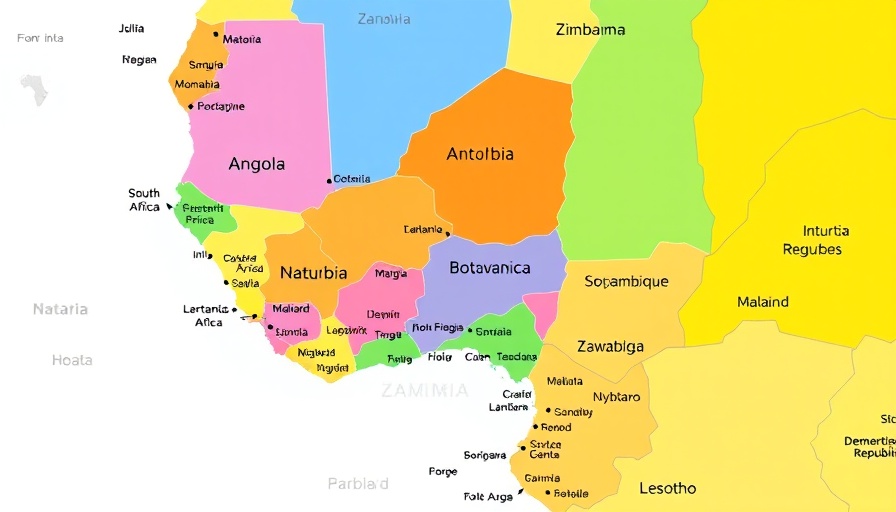
Understanding the Legacy of Liberation Movements in Southern Africa
Southern Africa’s political landscape, intricately shaped by the efforts of liberation movements, continues to grapple with its historical and contemporary realities. Prominent groups like Zimbabwe's ZANU PF and South Africa's ANC stand out, having significantly contributed to the dismantling of colonial regimes and minority rule. These movements were born out of a fierce struggle for self-determination, rooted in the aspirations of their respective populations for freedom, dignity, and justice.
Challenges and New Realities Facing Liberation Movements
While the liberation movements celebrated monumental victories in the past, they now face an array of modern challenges. Neo-colonialism, climate change, and geopolitical shifts threaten their sovereignty and capacity to govern effectively. As the article mentions, ZANU PF, which emerged triumphant in 1980, now wrestles with external economic sanctions aimed at destabilizing its governance—an ongoing struggle against forces that challenge the sovereignty they once fought to achieve.
Creating Durable Change: A Multifaceted Approach
The early actions of these liberation parties reflect their commitment to transforming their nations. ZANU PF, for instance, made strides in education and healthcare, while ANC opened opportunities for previously marginalized citizens. However, the effectiveness of these initiatives is often overshadowed by the impending socio-political issues they face in the current era. As these historical parties evolve, the question remains: can they adapt effectively to new political landscapes shaped by disenfranchisement and public frustration?
The Evolving Nature of Governance in Southern Africa
Decades after gaining independence, former liberation movements are scrutinized for their governance qualities. A notable shift is seen with declining public support as observed in recent electoral trends. For example, ANC's significant drop from 57% to 40% in support highlights a troubling trajectory for liberation movements that once promised substantial improvement in citizens' lives.
Whispers of Disillusionment: Is it Time for a Change?
The realization that liberation movements can turn into self-serving entities rather than vehicles for progress is evident. Scholars like Henning Melber point out that many former liberators struggle with public perception as they transition from liberation organizations into conventional political parties. The criteria that initially defined them appear diluted, resulting in widespread frustration among the electorate—a sentiment echoed strongly among younger generations.
Drawing Lessons for Future Leadership
In analyzing why some liberation movements have faltered while others thrive, it’s crucial to examine the core ideals that propelled them initially. Leadership based on the principles of democracy, transparency, and citizen engagement seems paramount to reviving the legacy of these movements. For instance, a renewed commitment to foster development, human rights, and responsible governance can reinvigorate their foundational ethos.
Contextualizing Modern Struggles: The Path Ahead
As these movements navigate the complexities of governance today, they must confront the disillusionment felt by many of their supporters. The blending of external pressures with internal discontent complicates their path forward. It’s worth contemplating whether new forces of social activism and technology could provide avenues for revitalization in Southern Africa’s political discourse. With digital transformation reshaping economies, the integration of technology seems essential to securing a future that resonates with the aspirations of the populace.
Your Role in Shaping a More Inclusive Future
As stakeholders in business, politics, and society, understanding the evolution of these liberation movements is crucial for future engagements. We encourage you to actively participate in discussions, support transparent governance frameworks, and advocate for innovation that aligns with the dreams of the communities affected by historical struggles. The legacy of these movements is not just about what they achieved but what future generations can learn from their journey.
Embrace this opportunity to engage with the unfolding story of Southern Africa’s liberation movements and their ongoing journey towards genuine self-determination and inclusive growth.
 Add Row
Add Row  Add
Add 




Write A Comment